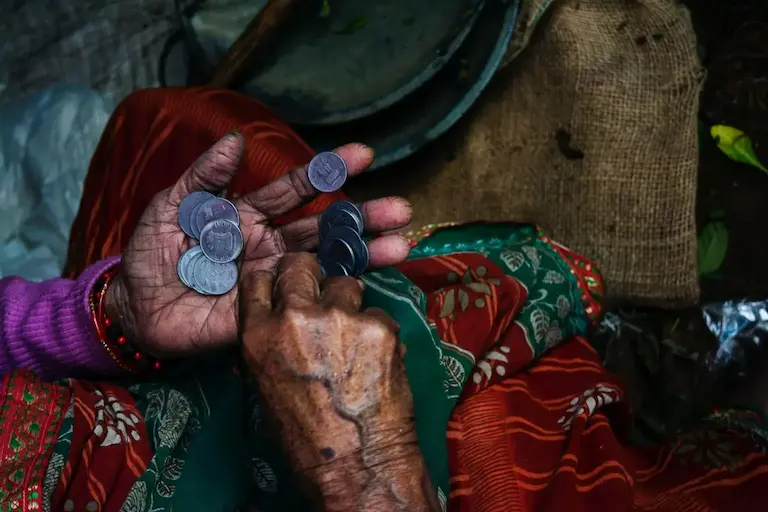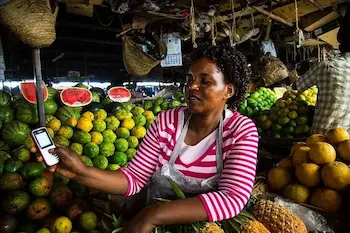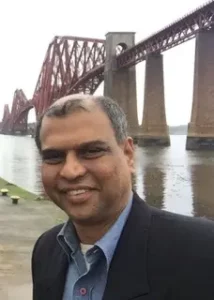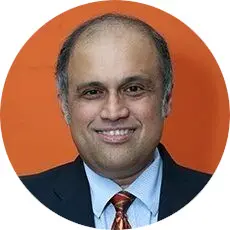1
“The number one problem in today's generation and economy is the lack of financial literacy.”
- Alan Greenspan (Economist and former chair of the Federal Reserve)
2
“The ascent of money has been essential to the ascent of man.”
- Niall Ferguson (Historian and Senior Fellow at Stanford and Harvard)
3
“What is growth for if not to help ordinary people thrive?”
- Winnie Byanyima (Executive Director of Oxfam International)
4
“It is imperative that we make consumers more aware of the long-term effects of their financial decisions, particularly in managing their credit card debt, so that they can avoid financial pitfalls that may lead to bankruptcy.”
- Daniel Akaka (Former US Senator from Hawaii)
5
“Financial inclusion helps lift people out of poverty and can help speed economic development. It can draw more women into the mainstream of economic activity, harnessing their contributions to society."
- Sri Mulyani Indrawati (Minister of Finance of Indonesia)
6
“The development of a balanced society with equitable growth is impossible without financially included and economically empowered people.”
- Queen Máxima of the Netherlands
Also the United Nations Secretary-General's Special Advocate for Inclusive Finance for
Development (UNSGSA)
7
“At a time of rising inequality, it is time to recognize that we have in our hands a set of tools that can expand opportunity for those at the base of the economic pyramid.”
- Queen Máxima of the Netherlands
Also the United Nations Secretary-General's Special Advocate for Inclusive Finance for
Development (UNSGSA)
8
“Financial services that are inclusive would enhance the vulnerable populations’ ability to escape poverty.”
- Queen Máxima of the Netherlands
Also the United Nations Secretary-General's Special Advocate for Inclusive Finance for
Development (UNSGSA)
The Need for Financial Inclusion
Households in the US are unbanked
0 Million
– FDIC
Adults are unbanked globally
0 Billion
– World Bank
Americans have access to prime credit
Less than 0 %
– Upstart
1
78% of men have an account at a financial institution, but only 74% of women do. In developing economies, this disparity is increased to 6%.
- World Bank
2
20% of adults in the US are unable to be scored using traditional credit reports metrics due to insufficient information, and would be better served with the use of alternative data
- FinRegLab
3
40% of formal MSME’s (micro, small, and medium enterprises) have an unmet financing need of $5.2 trillion, which is 1.4 times the current level of global MSME lending.
- International Finance Corporation
4
On an international financial literacy test for 15 year olds, the US ranked 7th out of 15.
- Organization for Economic Co-operation and Development
5
Only 31% of Americans ages 18 to 26 said that their high school did a good job of teaching them financial habits.
- Bank of America
6
11.5% of students who graduated from college in 2014 have loans in default.
- US Department of Education
7
In 2018, only 34% of respondents between ages 18 to 34 could answer at least four out of five questions correctly in a financial literacy quiz, down from 42% in 2009.
- Finra National Financial Capability Study
8
In the US, 16.3% of American Indian or Alaskan Native households, 13.8% of African American households, 12.2% of Hispanic households, 2.5% of White households, and 1.7% of Asian households are unbanked.
- FDIC
9
Americans average $38,000 in personal debt (excluding home mortgages).
- Northwestern Mutual
10
$352 Billion is Cost of Financial illiteracy to Americans each year.
- National Financial Educator’s Council
13
78% of workers live paycheck-to-paycheck.
- CareerBuilder
14
61% of Americans would have trouble accessing $1,000 for an emergency.
- BankRate
15
Americans have a total credit card debt of $841 billion.
- Federal Reserve Bank of New York
16
In the US, the total student loan debt is $1.75 trillion.
- Federal Reserve
17
Total motor vehicle loan debt in the US is $1.34 trillion.
- Federal Reserve
18
In the US, millions of low income renters are behind on their debt payments. Two-thirds of the renters with arrears (67%) are people of color. The total amount of debt from rent is estimated to be $15 billion.
- National Equity Atlas

Tenets of Financial Inclusion

Financial Literacy
- According to the S&P FinLit survey, globally only 1/3 of adults understand basic financial concepts, and Northern European countries are the most financially literate, whereas South Asia has the lowest financial literacy rate (25%).
- According to a study by the Champlain College Center for Financial Literacy, less than 38% of all public high school students receive more than 15 hours of formal Financial Literacy instruction in high school.
- According to the US Federal Reserve, 73% of people who had high financial literacy scores received financial education from personal experience, rather than formal instruction.
- India has hosted many immersive practical “financial literacy camps,” which has led to up to 95% of the attendees becoming banked.
FinTech
- As per the World Bank, in the last decade, 1.1 billion previously unbanked adults gained access to financial services, primarily due to the increase in FinTech and mobile money accounts.
- According to the Center for Financial Inclusion, in Sub-Saharan Africa, mobile money account ownership rose from 12% to 21% and is set to continue increasing at a faster rate.
- In Africa alone, there is the potential for more than 110 million new mobile money accounts to be created over the next few years, giving many access to financial services (Center for Financial Inclusion).
- Micro, small, and medium size enterprises are crucial in Sub-Saharan Africa, and comprise 90% of all businesses there. FinTech and Mobile Money Providers are able to cater to the needs of these enterprises and better serve their financial needs, and help bridge the financial inclusion gap.


Accessibility/Affordability
- A 2020 study by NYU Stern found that a “mobile footprint” of a customer was a better predicting factor than traditional credit scores in many cases, while allowing expanded access to credit.
- Recently, Equifax, which is one of the largest “credit score” providers, has partnered with a lab at GaTech to help research and utilize additional factors in their “Credit score”, to make better and more inclusive decisions to impact the un/underbanked.
- According to the World Bank, the number one cited reason for not having a bank account is not having enough money to create one.
- In India, the government sponsored Jan Dhan initiative incentivized the population to open a bank account, and was a huge success, leading to more than 400 million people becoming banked.
- According to the Federal Reserve Bank of New York, there are 1214 banking deserts in the US, which are locations with no bank branches or financial institutions within 10 miles. More than 75% of these banking deserts tend to be in rural locations. This lack of proximity to physically located financial institutions only hinders the un/underbanked, by making it harder for them to utilize financial services. COVID-19 has further exacerbated this situation with more closures of physical banking and financial institution branches.
Public Policy & Regulation
- According to a study by the Champlain College Center for Financial Literacy, only 11 states have public policies that require at least 15 hours of formal Financial Literacy instruction within high school.
- In 2022, 37 states have introduced financial literacy public policy legislation, while others are working to follow in their footsteps.
- According to McKinsey, there is a substantial productivity gap between SME’s (Small and Medium Enterprises) and large companies: 26% in France, 41% in Germany, and 54% in Italy. There is a need for governmental public policy to help improve the productivity of SME’s, as between 50-90% of the world’s labor force works for an SME, and by just halving the difference in productivity of SME’s and large companies, $15 trillion could be added to the global economy.

A message from our Founder & CEO
Dear Readers,
If I may ask, how many of you have a bank account or access to financial services?
We are privileged to have access to these financial services: according to the World Bank and FDIC, globally, 1.4 billion adults do not have a bank account, and in the US alone, 7.1 million households do not. Many of the unbanked have lower income statuses, compelling them to use predatory financial services, such as check cashing or payday loans, which often have extremely inflated costs and fees, leading to a vicious debt cycle. The annual inflation rate of US has accelerated to record highs since the past few decades. This increase in the cost of living has exacerbated the need to manage and strategize our finances. It is imperative that everyone has safe and affordable access to savings and credit within the financial system, to work their way out of poverty, and expand economic opportunities. Financial Inclusion is defined as providing equal, easier, affordable, and larger access to financial services. Financial Inclusion empowers a person’s economic well-being, by allowing access to education, healthcare, home ownership, and basic necessities of life. A well-functioning financial system is key to increased national economic growth and welfare.
…
Featured in the Atlanta Journal-Constitution Newspaper
Raj Mehta, a driven high school senior from Suwanee, has a vision that reaches far beyond the confines of a typical teenager’s world.
While other students have been busy navigating social media and the anxieties of adolescence, Mehta has been working to make life better for others…
Featured on TV on Atlanta News First (CBS)
Metro Atlanta high school senior Raj Mehta created a nonprofit called the ‘Fluid Ice Foundation’ to promote financial education, which he said he believes leads to inclusion and social equity.
Mehta said he saw the financial hardships in certain communities in 2020 and wanted to help…
Featured in Forsyth County Newspaper
A Lambert High School senior started a student-run nonprofit, the Fluid Ice Foundation, to promote financial education in Forsyth County and across the nation.
Raj Mehta said he first came up with the idea for the foundation about three years ago during the pandemic. At the time, he took note of the families in the community that were struggling financially as businesses were shut down and many lost their jobs…





 Raj Mehta – Financial Education Instructor
Raj Mehta – Financial Education Instructor